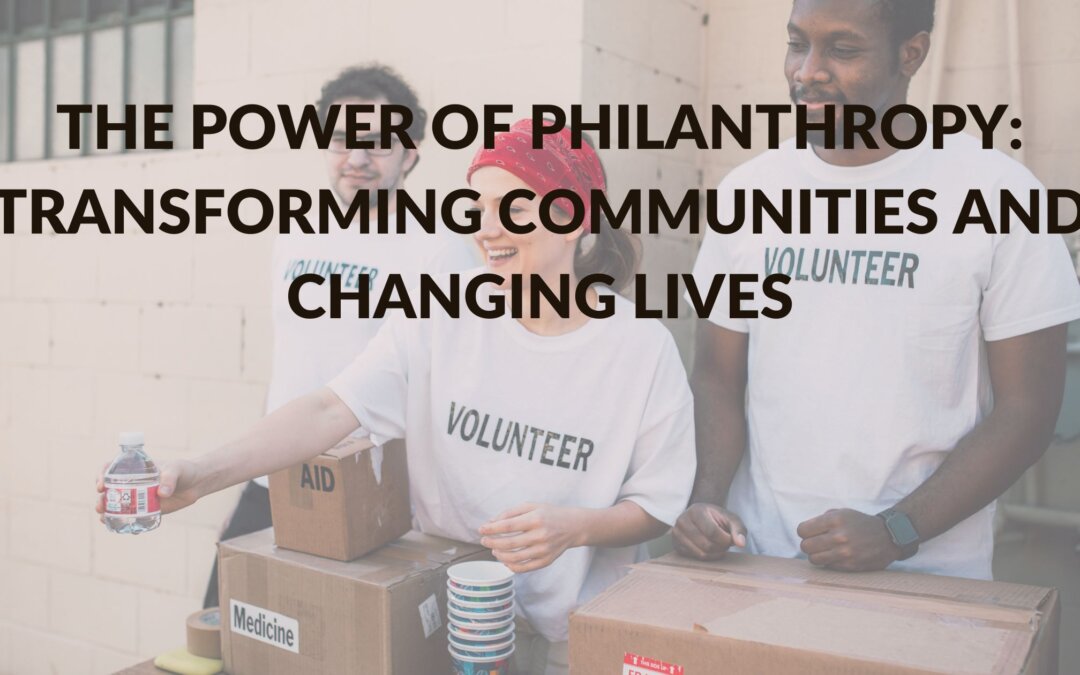Philanthropy, often described as the love of humanity, transcends simple acts of giving. It embodies a deep commitment to creating a better world by addressing social, economic, and environmental challenges. From funding educational initiatives to tackling public health crises, philanthropy shapes our communities and leaves a lasting legacy of positive change.
A Catalyst for Social Change
At its core, philanthropy is about making a meaningful difference. Wealthy individuals, corporations, and grassroots organizations alike contribute resources to tackle issues that governments or markets may overlook. For instance, philanthropic funding has been instrumental in addressing global health challenges, such as eradicating diseases like polio and combating HIV/AIDS. These efforts not only save lives but also empower communities to thrive.
However, philanthropy is not exclusive to billionaires or large organizations. Everyday acts of generosity, whether donating to a local food bank or volunteering time at a shelter, collectively have an enormous impact. These grassroots efforts are vital in addressing immediate needs and fostering community resilience.
Empowering Education and Innovation
Education is one of the most transformative areas where philanthropy makes a profound difference. Scholarships, grants, and funding for educational programs break down barriers, offering opportunities to those who might otherwise be left behind. The ripple effect is significant: educated individuals contribute to their families, communities, and economies in countless ways.
Beyond education, philanthropy fuels innovation. Initiatives like funding for clean energy research or advancements in medical technology push the boundaries of what is possible, leading to discoveries that benefit society as a whole. These investments often require significant risk and vision, which philanthropic support can provide when other funding sources hesitate.
Building Community and Fostering Equality
Philanthropy plays a vital role in promoting equality and inclusion. By funding initiatives that support marginalized groups, it helps to level the playing field. Programs addressing systemic issues such as poverty, discrimination, and lack of access to healthcare empower communities to break free from cycles of inequality.
For instance, women-focused philanthropic initiatives have proven to be especially impactful. By investing in education and healthcare for women and girls, these efforts not only improve individual lives but also uplift entire communities through increased economic participation and social stability.
Responsible Philanthropy
Despite its benefits, philanthropy is not without criticism. Some argue that it allows the wealthy to exert undue influence over public policy or bypass accountability. To counter this, responsible philanthropy emphasizes transparency, inclusivity, and collaboration with the communities it aims to serve.
Listening to local voices, understanding cultural contexts, and measuring impact ensure that philanthropic efforts achieve meaningful and sustainable outcomes. Rather than being seen as a top-down approach, philanthropy should be viewed as a partnership with those it seeks to support.
The Future of Giving
As technology evolves, so does the landscape of philanthropy. Digital platforms and crowdfunding have democratized giving, enabling people from all walks of life to contribute to causes they care about. Furthermore, younger generations are redefining philanthropy, prioritizing social and environmental impact over traditional forms of charity.
Philanthropy is not just about wealth; it is about intent, action, and the belief in a better future. Whether through large-scale donations or small acts of kindness, every contribution matters in the shared mission to create a more equitable, compassionate world.

